Introduction
In our country, a significant population suffers from malnutrition. So, it is crucial to incorporate diversity in our diet, especially by including millets. More than 70% of our diet is based on rice, wheat, and maize. As our traditional crops, millets are rich in nutrients such as protein, calcium, phosphorus, iron, and zinc. Due to their adaptability to dry soil conditions, they can be cultivated in various climates with limited water availability. Being gluten-free and fiber-rich, they contribute to overall health.
Smart Food Revolution
Millets can serve as a viable solution to fulfil the of food security, nutrition, and health needs in India. Recognized as smart food, they are nutritious, promote health, and can thrive with minimal water and low carbon footprint investments. Creating awareness among people about their benefits is crucial in today’s time. Farmers also need to be motivated to increase production.
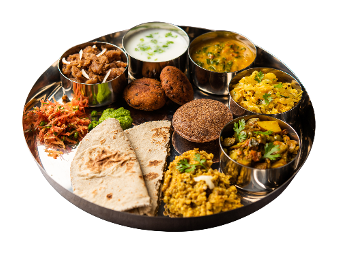
Millet Promotion by Government
It is encouraging that the Indian government is actively promoting Millets. Efforts are being made to make Millets a significant part of our diet. The government initiated the National Millet Mission in 2018, celebrating 2018 as the ‘National Millet Year.’ The announcement of celebrating 2023 as the International Year of Millets by the United Nations is expected to attract more attention to millets and their entrepreneurs. Several ICAR institutes are collaborating with farmers to overcome challenges and obstacles. Dispelling myths about Millets is also necessary.
Rising Popularity of Millets
There is a growing interest among people in Millets. Consumer demand has increased in various commercial sectors and urban areas. The demand for millet-based products can rise in urban areas and become a part of the daily diet for a significant rural population. Increasing awareness and understanding of the uniqueness of millet, such as its rich micronutrient profile, gluten-free nature, and absence of trans fats, are essential. Millets, being a smart food, are rich in nutrients and energy, leading the Indian government to label them as ‘nutri-Millets.’
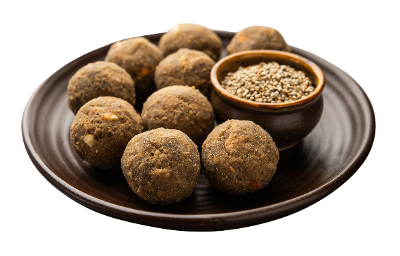
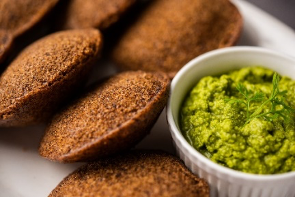
Entrepreneurial Opportunities in Food Processing
The food industry has begun to recognize the unique nutritional qualities of Millets. Today, millets offer a variety of products such as millet rice, millet cereal blends, millet snacks, etc. Products from Millets have been diversified into various ready-to-cook forms like semolina, pasta, instant dosa, upma, kheer mix, etc. Additionally, various ready-to-eat forms like cookies, puffs, ready-to-eat Millets, flakes, chikki, and many others are already available. However, further expanding and popularizing these products on a larger scale is needed.

As everyone is aware, people are increasingly aware of the benefits of nutritious and healthy food items. Many are shifting from a meat-based to a plant-based diet, preferring less processed grains over refined grains and desiring natural food products with good nutrition. People are now creating modern food products using traditional techniques and food items. In this context, our millets possess all the qualities that people desire. Our coarse grains are high in fiber and rich in nutrients, various health-beneficial phytochemicals, and antioxidants. The best part is that millets contain slowly digestible proteins and carbohydrates, making them suitable for diabetic patients. Due to the rise of new and emerging diseases worldwide, people are leaning towards millets for their health benefits.
Entrepreneurial Opportunities in Supply Chain Management
The availability of improved varieties of seeds is crucial for farmers. As the demand for millets increases, the demand for high-quality seeds also rises. Seed management can be a lucrative business, and producing seeds can be more profitable for farmers as the value of seeds is generally double or triple compared to grains.
Maintaining the supply chain has become essential to ensure the availability of millets throughout the year. As these are seasonal crops grown in just one season, having storage facilities for millets is extremely important to maintain a supply throughout the year. Millet aggregators gather these grains for supermarkets, as many are now connected to the food industry. They are not only purchasing coarse grains but also storing them.
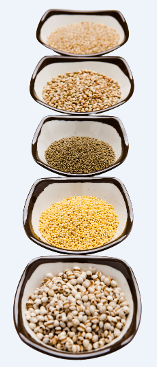
Marketing channels to millers
We can also offer marketing channels to millers so they can produce nutritious millet-based food. Due to millets’ abundant energy and nutritional elements, including them in the Integrated Child Development Services (ICDS) nutrition program and supplement programs for mid-day meals is essential. It will increase the demand for millets in our country and help increase farmers’ income.
The Indian government has initiated the Millet Mission to make it successful. For the success of Millet Mission, it is necessary to develop a robust supply chain, ensure sufficient production capacity, and develop a high-level range of value-added products and technologies. Establishing millet sales centers and ensuring consumer awareness is crucial, and clear standards and guidelines supported by the government are essential.
Economically weaker and needy individuals should be part of the government’s food security program. There are various possibilities in the trade of millet-based products, and there are many opportunities for employment in this sector in the future. During the Green Revolution, the focus was on increasing rice and wheat production to satisfy the population’s hunger. Now, with an improved economic and social status in our country, people are beginning to look at food not just for hunger but also from a nutrition-satisfaction perspective.
Entrepreneurial Opportunities in Bakery and Fermented Food Production
There is a significant opportunity for the bakery industry. So far, most biscuits are made from refined flour and refined grains. However, if made from coarse grains, not only will they be beneficial for health, but people will also prefer them. Fermentation is a food preservation technique that protects food items from spoilage by microorganisms and enhances their shelf life. It is one of the most efficient and successful methods used for ages. Fermented food products constitute one-third of the global food consumption, and 20% to 40% of our daily diet comprises individual grains.
Approximately more than 3500 food products are made using fermentation methods worldwide. Coarse grains are essential for making fermented food items. These grains are abundant in Asian and African countries, offering significant business opportunities. As fermentation produces numerous enzymes, it can assist in the digestion and absorption of nutrients. Probiotics have gained significant importance, and awareness about gut health is increasing.

Packaging of Millet Products
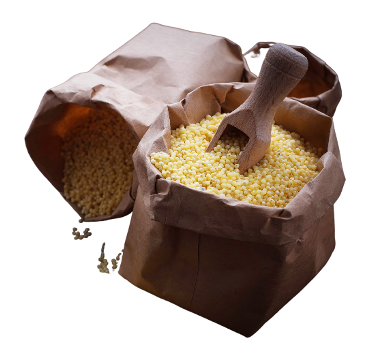
Packaging, storage, security, and transportation are fundamental needs for millet products. The Indian Institute of Packaging in Mumbai has regional centers in Chennai, Kolkata, Delhi, Hyderabad, Ahmedabad, and Bangalore. This institute aims to boost the export market through innovative packaging and prepare people in the packaging field. The institute provides certification for testing and exporting packaging materials. Similar to the Food Safety and Standards Authority of India (FSSAI) in India, the FDA and CFR work for the United States and other countries
For promotion and to enhance production, it is crucial to develop machines for millet processing. Mechanical engineers can contribute to this industry by building machines for farmers and entrepreneurs in the processing sector.
Government Support to Entrepreneurs
For the support of entrepreneurs, there are government institutions and schemes like APEDA (Agricultural and Processed Food Products Export Development Authority). APEDA assists entrepreneurs in exporting millets, and its support is crucial for the international demand for millets. APEDA organizes international trade fairs where discussions take place between exporters and importers, aiding our exports.

The Pradhan Mantri Sookshma Khadya Prasanskaran Udhyam Yojana (PMFME Scheme) is another government initiative under the Atmanirbhar Bharat Abhiyan. This scheme aims to strengthen the linkage of small-scale food processing units and enhance the overall structure. It supports farmer-producer organizations (FPOs), self-help groups (SHGs), and producer cooperative societies to improve their value chain.

In marketing millet-based products, establishing a good brand is essential to ease the purchasing decision for consumers. Popular varieties like Barnyard Millet, Foxtail Millet, and Little Millet are widely accepted in several countries. Research should also focus on the possibilities of extracting oil from millet husks. Another avenue worth considering is exploring the potential of Jowar stems for brewing beer instead of using malted barley.
Conclusion
In conclusion, the development of millet-based products and their marketing requires attention to product characteristics, flavor, taste, and improvements in high-fiber and other nutritional aspects.

